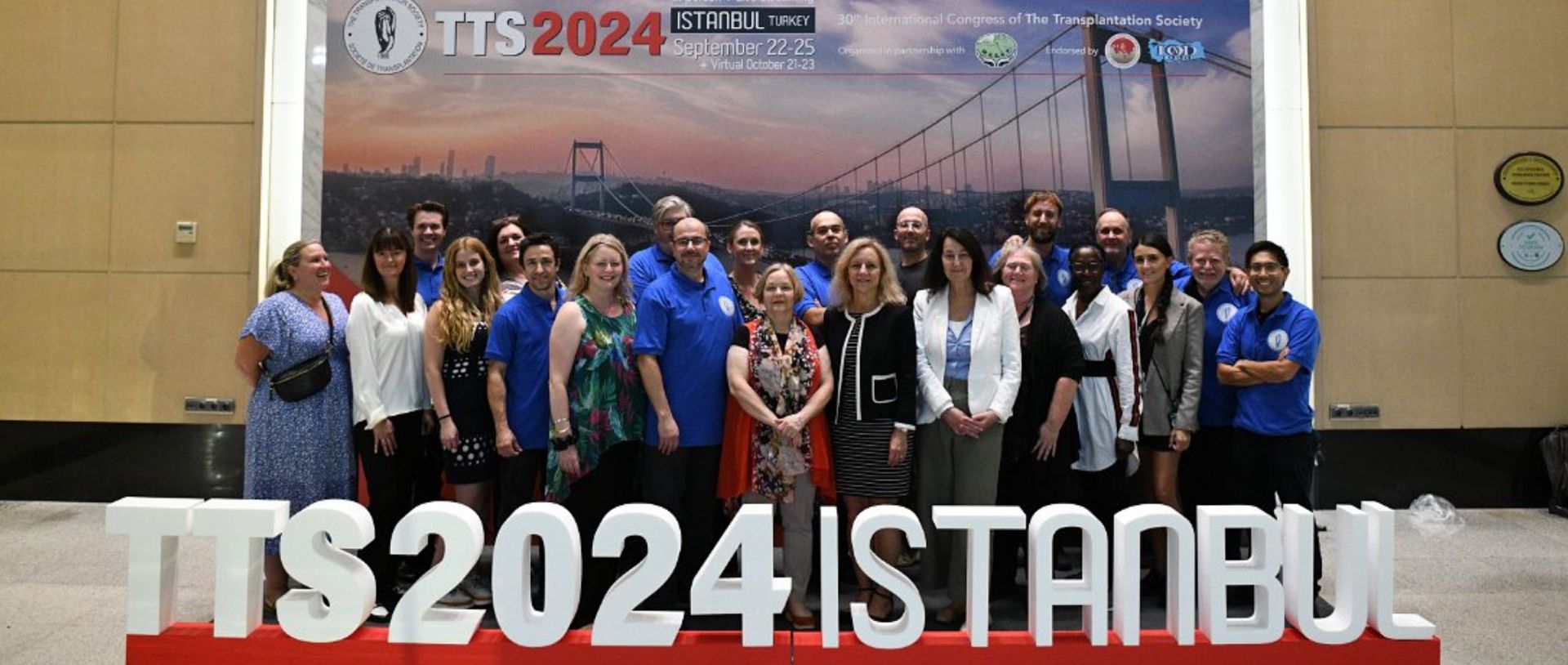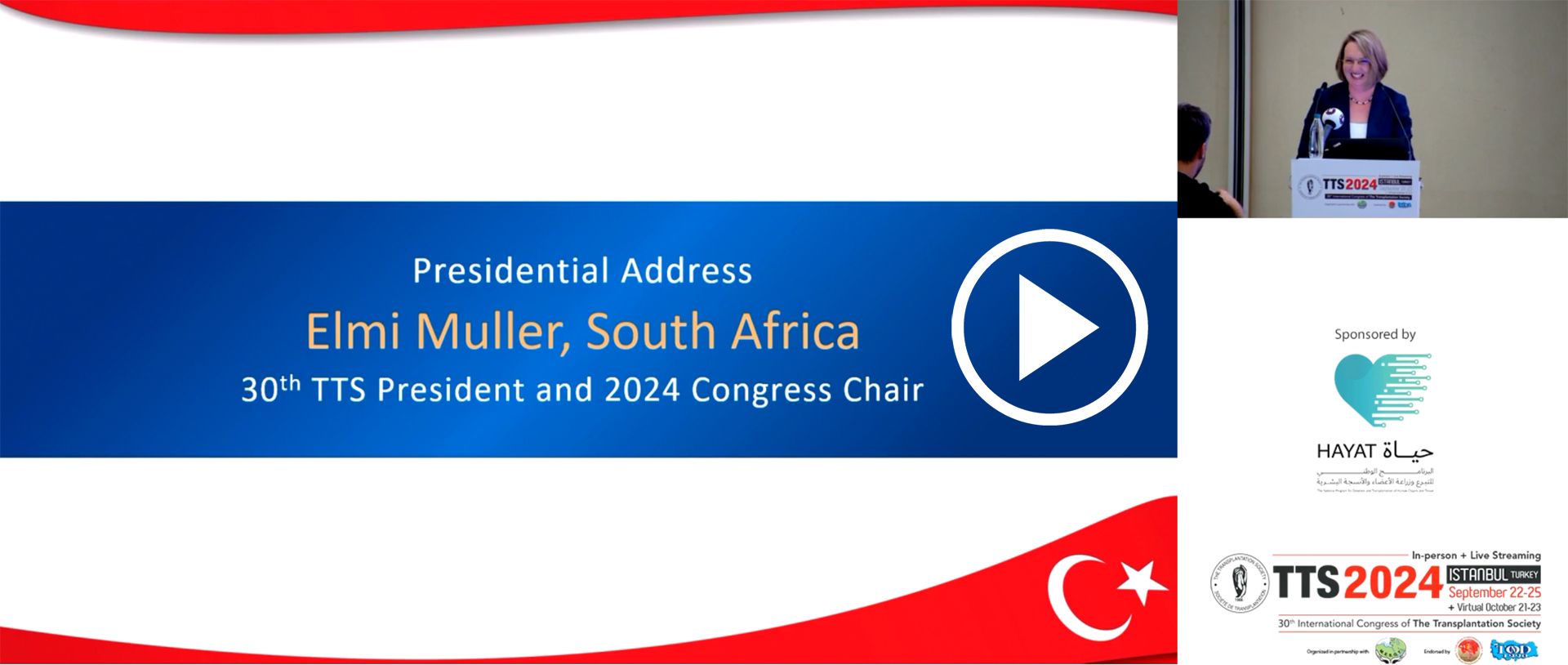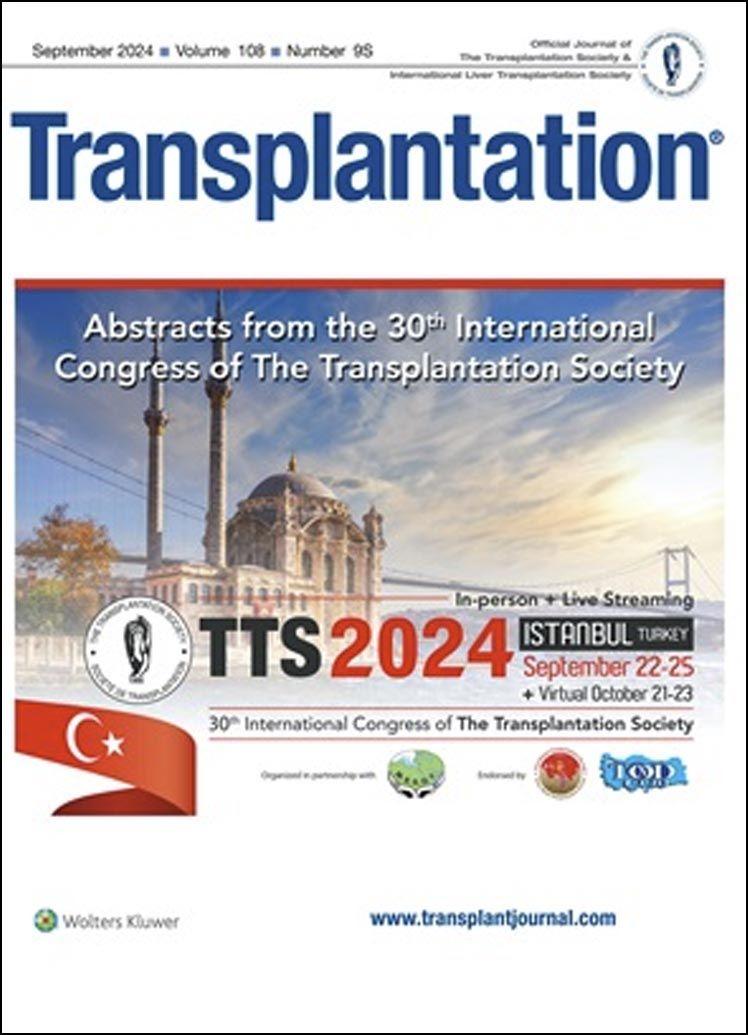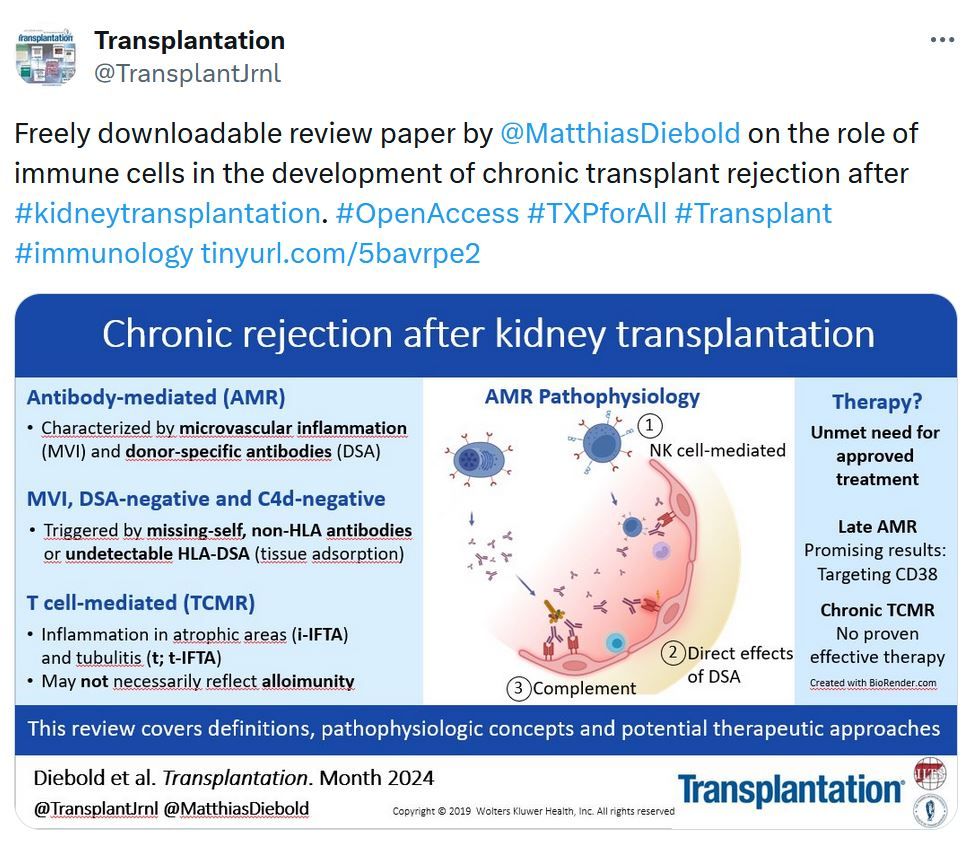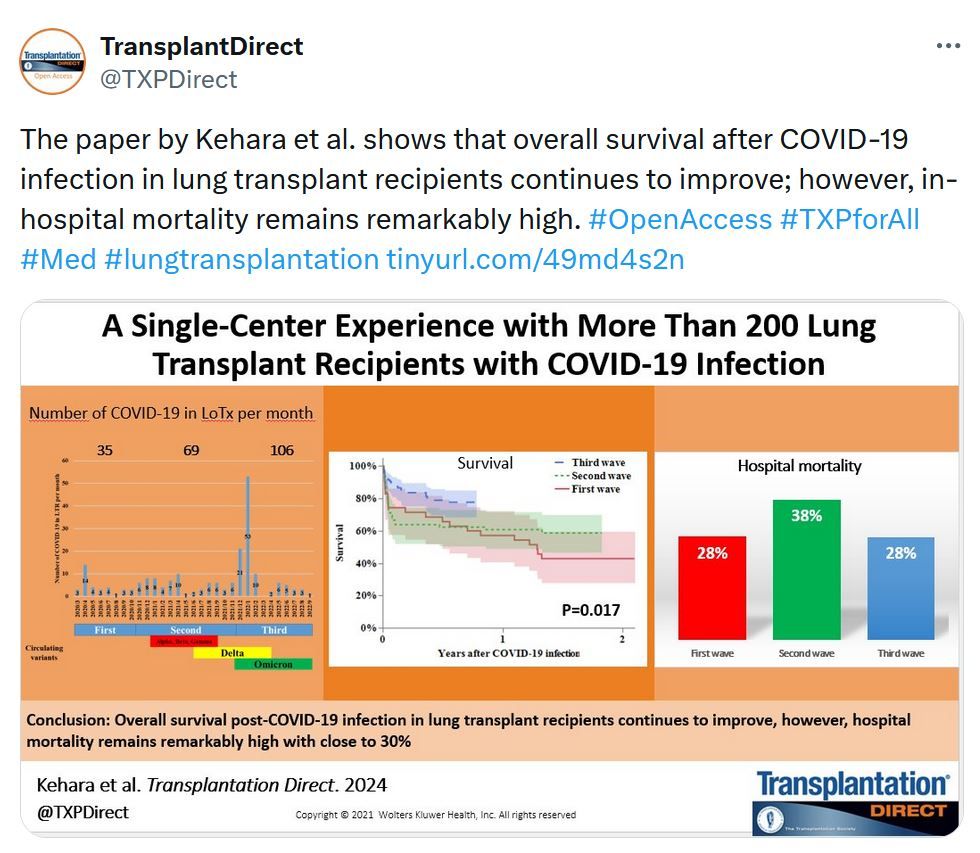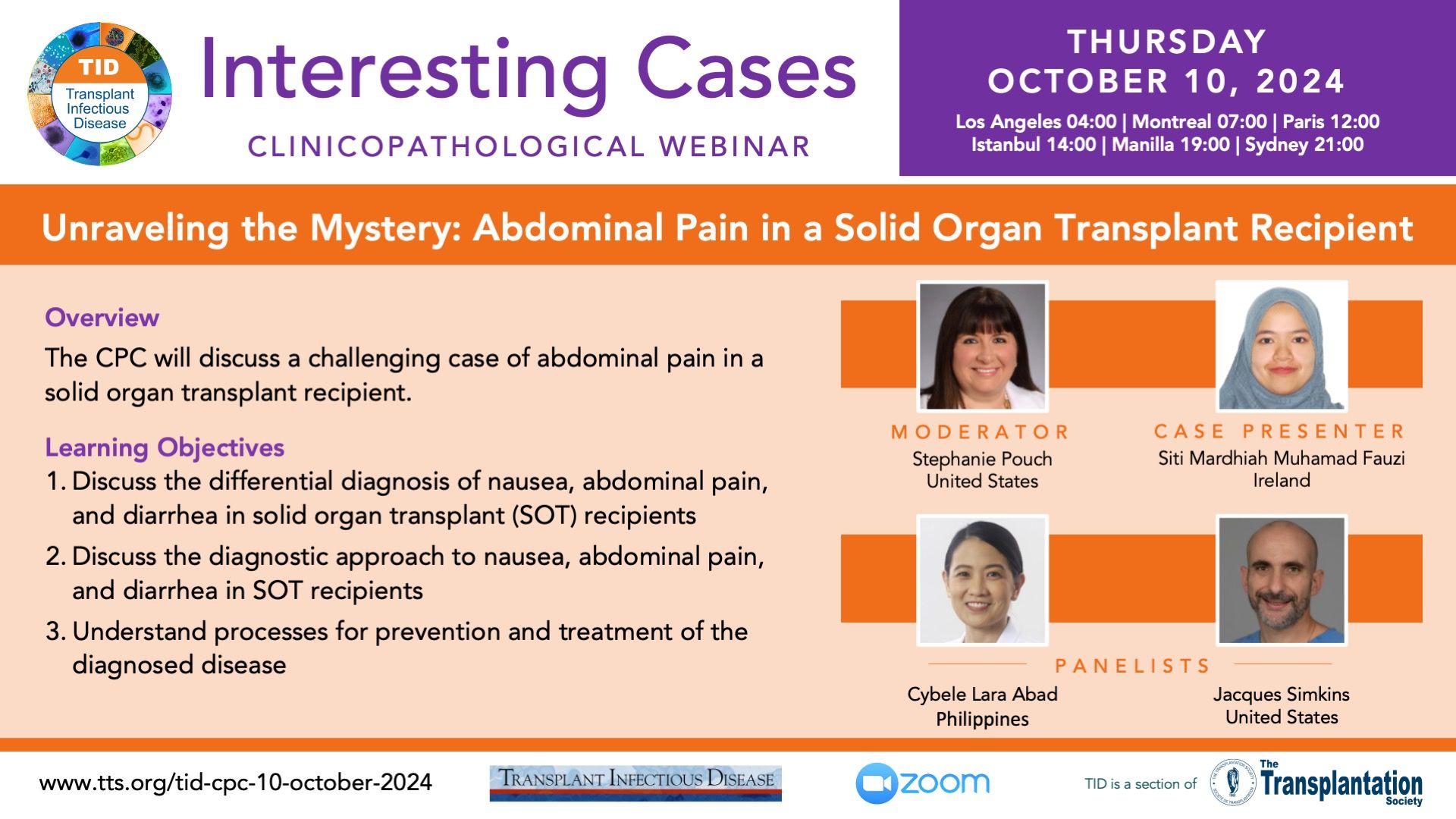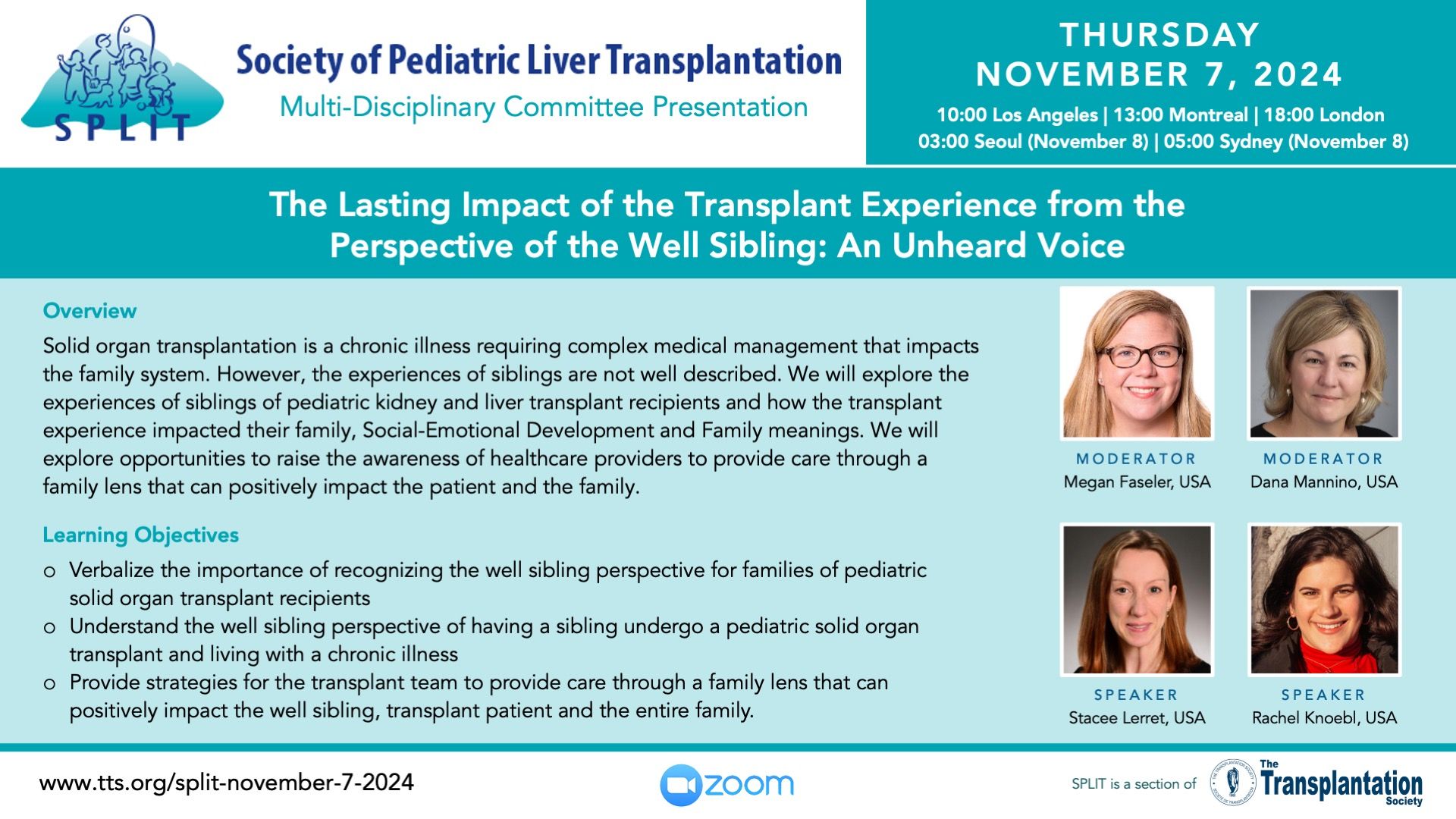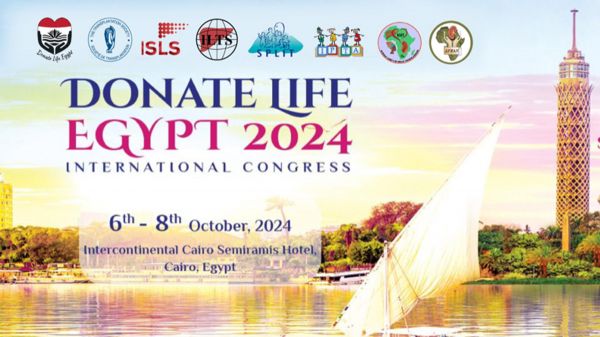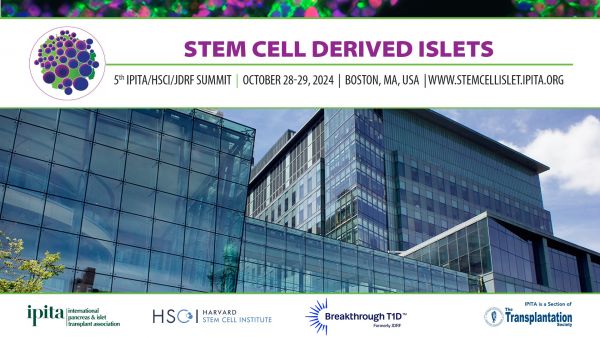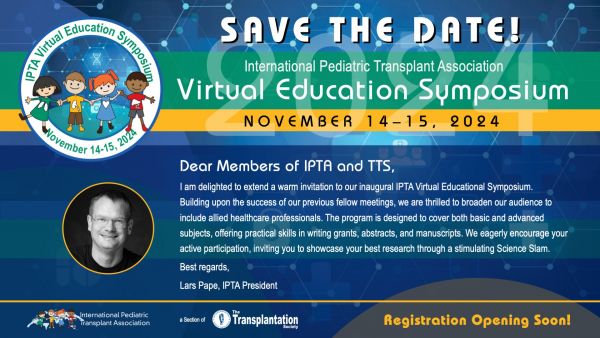
TTS 2024 Congress Thank You!

Read Virtual Abstracts from the TTS 2024 Congress
This issue explores significant developments in transplantation. Our expert reviews this month include five papers from the various working groups at the Global Transplant Summit in Santander addressing sufficiency, transparency, and oversight for equity in transplantation. New international expert lead guidelines on the management of the BK virus are also included. Elsewhere the issue addresses the impact of mitral annular calcification (MAC) on liver transplant outcomes, studies on living donor liver transplantation (LDLT) and the complexities of donor-specific antibodies (DSAs) and ABO incompatibility, the efficacy of nucleos(t)ide analogs in preventing hepatitis B virus (HBV) recurrence post-liver transplantation. Furthermore, it addresses the evolving role of donor-derived cell-free DNA (dd-cfDNA) as an early biomarker for renal allograft rejection, demonstrating its potential to facilitate timely intervention and improve patient outcomes compared to traditional markers like serum creatinine. These studies collectively advance our understanding and clinical approach to transplantation, offering insights that may redefine current practices and improve patient care worldwide.
Table of Contents
Virtual
- V-110.1: The impact of SGLT2 inhibitors on clinical outcomes in kidney transplant recipients with post-transplant diabetes mellitus
- V-110.2: Specific gut microbiome and metabolome features in renal allograft rejection via multi-omics integration analyses
- V-110.3: Understanding sex differences in relative cancer survival in kidney transplant recipients: A bi-national study, 1980-2019
- V-110.4: Assessing the outcome of deceased donor transplantation in recipients aged 70 and above: Are renal transplants a viable option for the ageing population?
- V-110.5: Spontaneous resolution of subclinical antibody-mediated rejection detected by protocol biopsy in renal transplantation
- V-110.6: Second kidney transplant: A single centre retrospective cohort study from north India
- V-110.7: Prevalence of non- representation of HLA antigens and alleles in Single Antigen Bead assay panels in patients at a referral lab
- V-111.1: Diagnostic test accuracy of detecting donor-derived cell-free DNA In renal transplant rejection: A systematic review and meta-analysis
- V-111.2: Confirmation of the multi-parametric cfDNA algorithm for early allograft injury events in lung transplantation
- V-111.3: Quantiferon®-Monitor, infections and long-term survival in lung transplant recipients
- V-111.4: PD-1 stimulation of human regulatory T cells using stimulating de novo miniprotein in vitro increased Foxp3/Helios expression
- V-112.1: Epidemiology, clinical outcomes and treatment patterns of cytomegalovirus infection after organ transplant in China: A scoping review and meta-analysis
- V-112.2: A systematic review and meta-analysis on the effects of antiviral prophylaxis in preventing posttransplant lymphoproliferative disease in solid organ transplant recipients
- V-112.3: Preferences for the treatment of polyomavirus (BKPyV) infection in kidney transplant recipients: A discrete choice experiment with patients, caregivers and clinicians
- V-112.4: Infection transmission risk from kidney donors with active Hepatitis B: A systematic review and meta-analysis of observational data
- V-112.5: Covid-19 hospitalization among liver transplant recipients: Multicenter study of clinical outcomes in the United States
- V-113.1: Exploring the role of an implantable doppler probe as a blood flow-monitoring device in kidney transplant: A feasibility randomized controlled trial
- V-113.2: Belatacept conversion in pancreas transplantation: Promising insights from a cohort study
- V-113.3: Growth and success of liver transplantation in the United Arab Emirates: An interim 6-Year report
- V-210.1: Efficacy of 12-week pegcetacoplan in kidney transplant recipients with recurrent C3 glomerulopathy (C3G) or immune complex membranoproliferative glomerulonephritis (IC-MPGN)
- V-210.2: Pediatric to adult transition in solid organ transplant recipients: A systematic review of existing transition programs
- V-210.3: Paired kidney exchange program: A utilitarian service to the underserved populations in the northern great plains of the United States
- V-210.4: Empagliflozin effect in prevention of contrast nephropathy after coronary artery angiography or percutaneous coronary intervention
- V-210.5: The outcomes of immunosuppression modification in mycophenolate mofetil-related gastrointestinal mucosal injury in kidney transplant recipients
- V-210.6: Observational study of factors affecting Tacrolimus trough level in renal transplant patients
- V-211.1: High PD-L1 expression on Toll-Like-Receptor-stimulated-Bregs as keystone of regulatory function in PD-L1-PD1 interactions with CD4+T cells
- V-211.2: Computational immuno-profiling and prediction of antibody-mediated rejection in kidney transplant recipients
- V-211.3: Natural killer cells involvement in kidney allograft antibody-mediated rejection through biopsy transcriptome assay by data mining strategy
- V-211.4: Single-cell RNA sequencing provides insights into intragraft B cell complexity in chronic lung allograft dysfunction (CLAD)
- V-211.5: Where & What: Urinary metabolites reveal post-transplant journey & clinical status
- V-211.6: Racial equity in intestine transplantation in the United States
- V-212.1: En bloc kidney transplant to pediatric recipient: Experience of a tertiary care hospital
- V-212.2: Enhancing pediatric kidney transplant rejection detection: Integrating donor-derived cell-free DNA fraction and quantity
- V-212.3: Living donor versus deceased donor in pediatric liver transplantation: A systemic review
- V-212.4: Living donor liver transplantation for paediatric wilson’s disease: Does an acute presentation impact post-transplant outcomes?
- V-212.5: Candida colonization and candidemia among pediatrics solid organ transplantation: A one year experience?
- V-213.1: Successful long-term somatic support of brain-dead human decedent in pre-clinical xenotransplantation study
- V-213.2: Specialist nurse attitudes to consent legislation change
- V-213.3: Multivariable prognostic factors in a large multicenter cohort of post-transplantl disorders (PTLD): WHO classification and type of organ transplant impact the event-free survival
- V-213.4: Impact of hypothermic machine perfusion on delayed graft function in kidney pairs from the same deceased donor in the United States
- V-213.5: Donor audits in deceased organ donation: A scoping review
- V-213.6: How did the war affect organ transplantation in Syria?
- V-213.7: A careful aggressive approach at a rural transplant center making a difference
- V-310.1: New prospective multicenter pOKRA study: Diagnosing allograft rejection and linking donor-derived cell-free DNA to interstitial fibrosis and cortical atrophy severity in pediatric kidney transplant rejection
- V-310.2: Diagnostic performance of peripheral blood gene expression at 2 months post-transplant and interim correlation of tests with renal function over 2 years
- V-310.3: Obesogenic medication use in end-stage kidney disease and association with transplant listing
- V-310.4: Outcomes of simultaneous liver kidney transplant recipients according to pre-transplant transjugular intrahepatic portosystemic shunt (TIPS) in the United States
- V-310.5: Predictors of delayed graft function in the United States: A comprehensive multivariable analysis with a focus on hypothermic machine perfusion
- V-310.6: Relationship between pre-transplant and post-transplant echocardiographically derived left atrial volume index and clinical outcomes in kidney transplant recipients
- V-311.1: Functional PD-L1 transfer from TLR-Bregs to activated splenic CD4+T cells
- V-311.2: Perfusion techniques and long-term outcomes in kidney transplantation: A systematic review and meta-analysis
- V-311.3: Single-cell RNA sequencing revealed the immunophenotypic features of macrophages in cardiac transplants and uncovered Lgals9 promoted their polarization towards the M2b subtype
- V-311.4: The impact of improving hypoxic conditions on graft viability in subcutaneous islet transplantation
- V-312.1: Evaluation of proteinuria and microalbuminuria in a long-term pig-to-human xenothymokidney study
- V-312.2: Can blood products cause antibody-mediated xenograft rejection? Detection and removal of anti-pig xenoantibodies in human blood products
- V-312.3: Insights from platelet and leukocyte sequestration in pig lung perfusion with human blood: role of selectins, porcine sialoadhesin, and CD11b/CD18 Integrin
- V-312.4: In vivo evaluation of pig kidney xenograft physiology: Water handling and the renin-angiotensin-aldosterone system
- V-312.5: Transesophageal echocardiographic evaluation of the heart in genetically modified pigs bred for xenotransplantation
- V-312.6: Case studies in renal xenotransplantation pharmacology: pharmacokinetics and pharmacodynamics of tacrolimus, mycophenolate mofetil, and vancomycin
- V-313.1: A novel anticoagulation protocol increased levels of antithrombin III, protein C and S after liver transplantation in children and resulted in a reduced incidence of hepatic artery thrombosis
- V-313.2: Alterations of body composition in liver transplant recipients
- V-313.3: Vancomycin resistant enterococcus infection in multivisceral transplant and small bowel transplant recipients: A 10-year single center experience
- V-313.4: Multivisceral transplantation: Description of our extraction technique
- V-313.5: Descriptive analysis of mechanical ventilation and oxygenation in lung potential donors at ablation day
- V-313.6: The comparison of in-hospital complications and resource utilization between bilateral and unilateral lung transplant in patients with COPD: A 10-year study of National Inpatient Sample
WTC 2025 - Call For Program Sessions

Upcoming Webinar Presentations
ISN-TTS Fellowship Program
Contact
Address
The Transplantation Society
International Headquarters
740 Notre-Dame Ouest
Suite 1245
Montréal, QC, H3C 3X6
Canada
Используйте Вавада казино для игры с бонусом — активируйте промокод и начните выигрывать уже сегодня!

